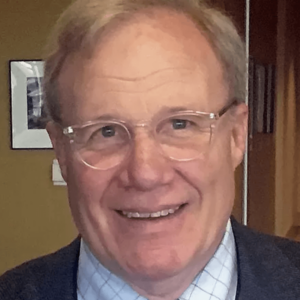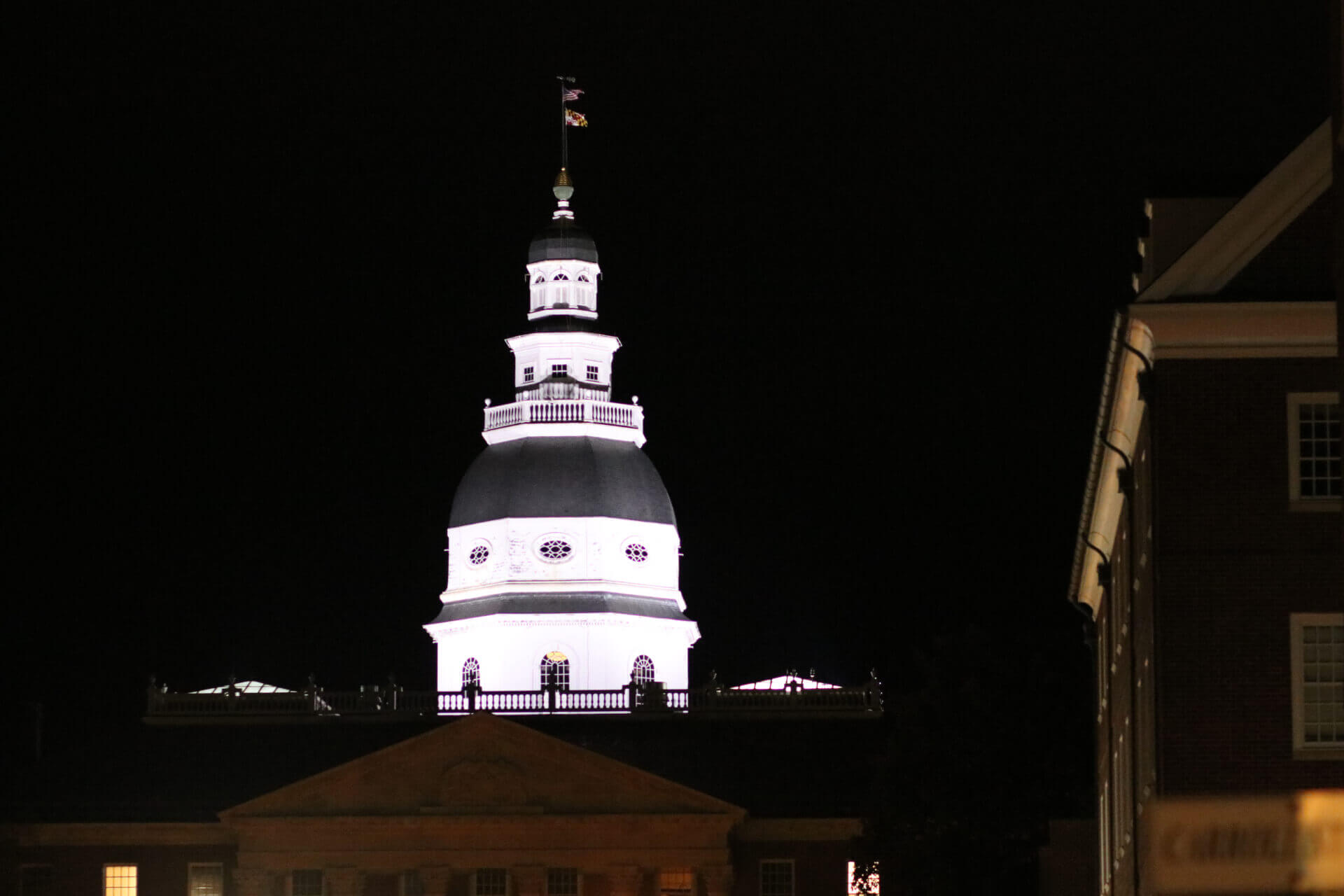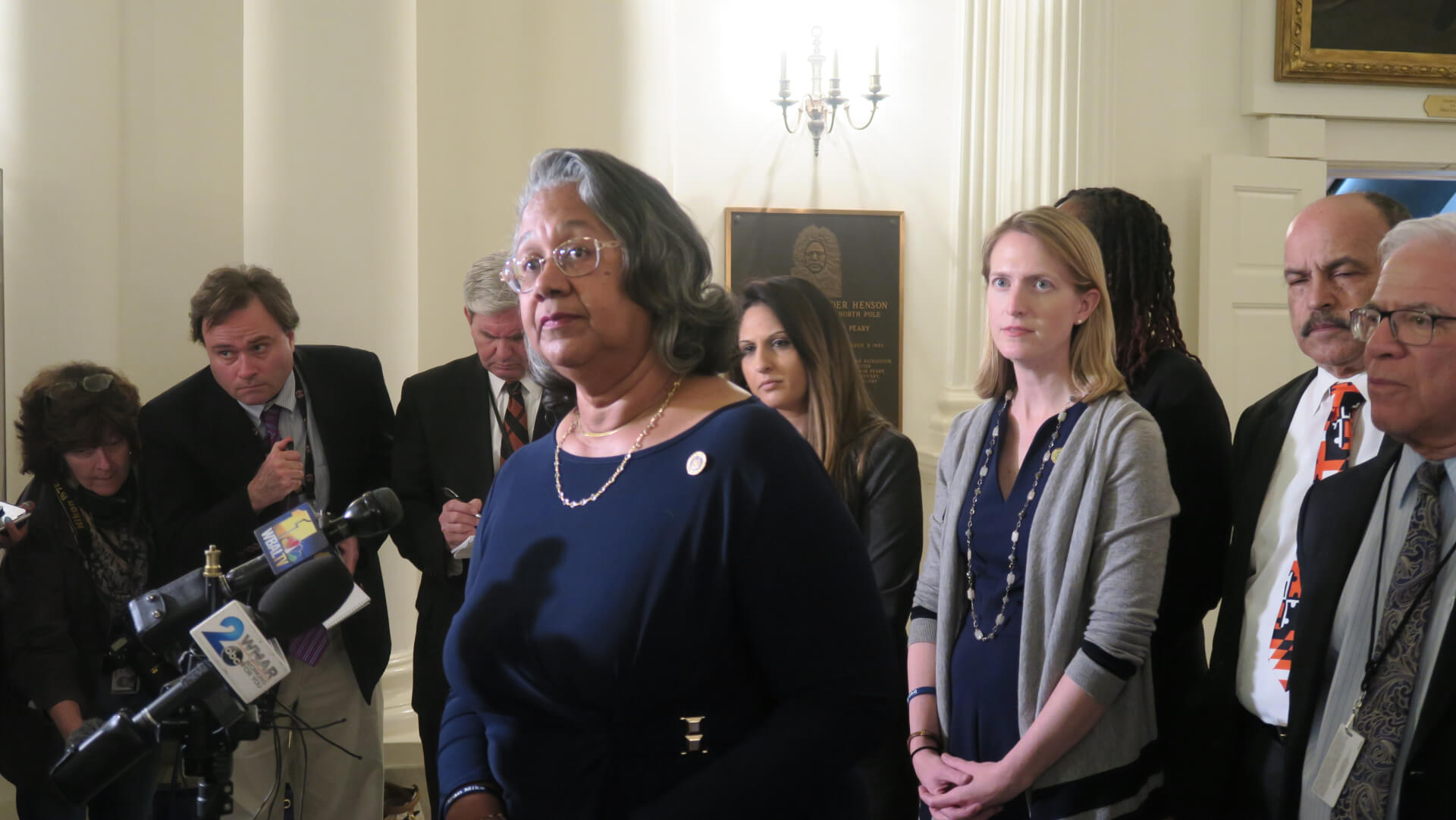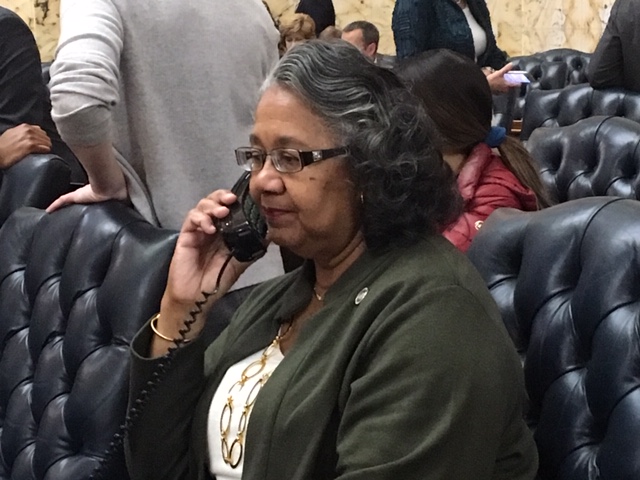Prosecutors in Oaks Case Want to Keep FBI Informants From Testifying Next Week
By William F. Zorzi
Federal prosecutors in the public corruption case against Maryland state Sen. Nathaniel T. Oaks are asking the judge to prevent defense attorneys from calling certain witnesses – including two FBI undercover sources – at a motions hearing scheduled for next week.
Prosecutors wrote in a memo filed Tuesday they only learned this week that the defense had asked subpoenas be issued requiring “Mike Henley,” identified last week by Oaks’ federal public defenders as William Myles, and a “Cooperating Witness,” identified by Maryland Matters Saturday as Robert J. Barrett, appear at the hearing, scheduled for March 16.
Myles had posed as “Mike Henley,” a Texas businessman wanting to build apartments in Baltimore who allegedly paid Oaks $15,300 in a bribery scheme. Barrett has only ever been identified in court filings as both the “Cooperating Witness” and “Confidential Witness” (“the CW,” in shorthand), and by the defense as “S-00063808.”

Judge Richard D. Bennett
Federal public defenders also have asked that two members of the Maryland Department of Legislative Services be subpoenaed as witnesses at the motions hearing as well, the filing states. Those employees drafted legislation at Oaks’ request — though it was never introduced — which prosecutors allege was part of a bribery scheme involving the lawmaker.
Oaks, a West Baltimore Democrat, is charged with nine counts related to the bribery scheme and one count of obstruction of justice. He has pleaded not guilty to all of the charges.
The defense motions supporting the subpoena request – ex parte motions placed under seal and apparently never seen by prosecutors – have been granted by U.S. District Court Judge Richard D. Bennett, according to the filing by Kathleen O. Gavin and Leo J. Wise, the assistant U.S. attorneys in the Oaks case.
Now that prosecutors know about the subpoenas and the supporting, sealed, memos, they are asking Bennett to issue “an order precluding defendant from presenting any witness testimony” at the hearing on three defense motions.
“Allowing the defendant to call Henley and the CW to testify at the hearing … would essentially provide the defendant with the opportunity to conduct pretrial depositions of government trial witnesses,” Gavin and Wise wrote.
The tone of one footnote in the prosecution memo to Bennett suggests just how irritated the government lawyers became upon learning of the defense tactics.
“The government has not disclosed the true name of ‘Mike Henley’ in any public filing to date out of concern for his safety and due to his work in other ongoing sensitive investigations,” Gavin and Wise wrote. “Without even checking with the government, the defense gratuitously named this witness in their pleadings last week.”
Myles was a “professional set-up artist” who has been paid $1.1 million by the federal government since 2007, when he began working undercover for the FBI, Oaks’ federal public defenders wrote in a filing last Thursday.
Barrett, the second FBI informant, was a key aide to two Baltimore County executives who took at least $22,000 in bribes before becoming an FBI undercover informant under a plea agreement. As an informant who wore a body wire and whose telephone conversations were recorded, he became an integral part of a wide-ranging probe of Maryland political corruption that snagged Oaks, records show.
Most recently a ranking Baltimore County public school employee before retiring last week, Barrett pleaded guilty in September to just one count of filing a false income tax return, in return for agreeing to work for federal investigators in their corruption investigation, court records show.
Lucius T. Outlaw III and Rebecca S. Talbott, federal public defenders, have asked Bennett to dismiss six of the 10 charges against Oaks.
Three charges against Oaks that are not before Bennett thus far are three counts of wire fraud.
The defense argues that five of the charges for violating the federal Travel Act by using an “interstate facility” (a cellular telephone) to violate the state’s bribery law should not apply. They maintain the sixth charge — “honest services wire fraud” – is not specific enough in its allegations, and a key term used in the indictments, “official duties,” is “constitutionally vague.”
Federal prosecutors have rejected the defense assertions in multiple court filings.
Outlaw and Talbott also strongly suggested that investigators entrapped Oaks during a months-long series of attempts to bribe him – and that two FBI undercover informants were relentless in their pursuit of the lawmaker because each had a reason to be.
The defense lawyers filed a memorandum Thursday in support of an earlier motion for Bennett to agree, before Oaks’ trial, to explain entrapment to the jury – to which the prosecution vehemently objected in a filing last month.
Outlaw and Talbott maintained in the filing they are not asking Bennett to guarantee that he would give the entrapment instruction to the jury unless the defense can prove entrapment during Oaks’s trial.
The single obstruction of justice count stems from allegations that while Oaks was supposed to be cooperating with federal investigators, he tipped off a target in the bail-bonds industry, known in his case only as “Person #1,” to the existence of a corruption probe.
The defense convinced Bennett to separate Oaks’ trial on the obstruction charge from the trial on the first nine counts.
Oaks’ trial on the nine bribery-related charges is scheduled to begin April 16, a week after the Maryland General Assembly adjourns. The obstruction of justice trial is set for Aug. 20.




 Creative Commons Attribution
Creative Commons Attribution